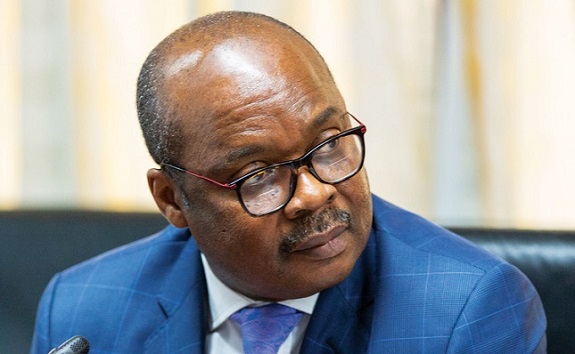The Monetary Policy Committee (MPC) of the Bank of Ghana has announced its decision to maintain the monetary policy rate at 29 percent, citing persisting upside risks to inflation.
Dr. Ernest Addison, Governor of the central bank, disclosed the rationale behind the decision during the 117th MPC meeting’s press briefing in Accra.
“Despite a sharp deceleration in 2023, the pace of disinflation has moderated in the first two months of the year. While inflation experienced a slight uptick in January 2024 followed by a marginal decrease in February, the latest forecasts indicate a potentially elevated trajectory,” stated Governor Addison.
Factors contributing to this outlook include possible adjustments in transport fares, utility tariffs, higher fuel prices and the pass-through effects of exchange rate depreciation.
Headline inflation has demonstrated relative stability since December 2023, with a decline to 23.2 percent in February from 23.5 percent in January 2024. This decrease was driven by reductions in both food and non-food inflation, signalling broad-based easing in underlying inflationary pressures. Core inflation, excluding energy and utility costs, also witnessed a slowdown, dropping to 24 percent in February 2024.
The bank’s inflation expectations survey across banking, consumer and business sectors has indicated overall stability in future inflation expectations. Meanwhile, global inflation has continued to alleviate, primarily due to declining food and energy prices, coupled with tight monetary policies. Nevertheless, persistent tight labour markets and the enduring effects of currency depreciation have sustained underlying inflation pressures.
Looking ahead, global inflation is anticipated to further decline, although geopolitical tensions and potential supply disruptions in the Red Sea region pose significant risks.
Despite easing inflation, global financing conditions remain constrained, partly due to uncertainties surrounding developments in the Middle East, potentially impacting energy prices and prolonging central banks’ cautious stance on interest rates.
Domestically, the economy exhibited stronger-than-expected growth in 2023, with fourth-quarter GDP growth reaching 3.8 percent, driven by growth across all sectors. The Composite Index of Economic Activity (CIEA) showed further improvement in January, affirming the ongoing economic rebound. Despite positive indicators, private sector credit growth remained subdued, attributed to banks’ risk aversion amid weakening asset quality.
The MPC’s decision to maintain the monetary policy rate underscores the Bank of Ghana’s commitment to balancing economic stability amid persistent inflationary risks and supporting sustainable growth of the economy.





